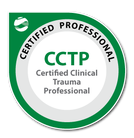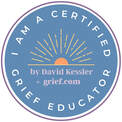|
“Trust is the glue of life. It's the most essential ingredient in effective communication. It's the foundational principle that holds all relationships.” --Stephen Covey
If you ask any couple, they will tell you that trust is foundational in the relationship. Violations of trust are the most common reason that couples seek help. It is devastating when a partner breaks the trust that has been established. It is not easy, but with work and effort trust can be rebuilt. I often use the analogy that as a couple, you are building a city together. The longer the couple has been trusting in the relationship the larger the city grows. If there is a small trust issue, it may just damage a building or two, but the rest of the city remains strong. When there is a major violation of trust it is like an earthquake hits and the entire city crumbles. All the forms and structures of the relationship that were once known are gone. The city is now just dust and debris. It becomes dangerous to navigate and feels foreign. If the couple tries to ignore the problem and move on without proper clean up, it is like building new structures on top of the rubble. It is not a firm foundation and it won’t be long before the new structures fall. It is only when couples make genuine repair attempts and work to gain trust again that the debris starts to be cleaned out. Reaching out to make a genuine apology while listening with the intent of understanding, is like the removal of a wheelbarrow of debris. It can’t all get cleaned up in one ‘I’m sorry.’ Clearing is arduous work. It takes time and a willingness to be vulnerable, but the work starts to clear enough solid ground to start rebuilding. Couples can start creating their new city while sections of debris remain. The beauty is that they get to choose how they would like to rebuild their city. In this new city, they can decide what was working from the old and incorporate it, while they can leave out what wasn’t working. When they continue to communicate with clarity, they begin to rebuild and remove debris. Eventually, a new relationship is created that may, or may not, look anything like their old relationship. I emphasize that this is a brand-new relationship and it must be treated with the respect and reverence of any new relationship. Violations of trust do not need to end a relationship. They can become an opportunity to create a new relationship which better meets the needs of everyone involved. It takes a willingness to do the demanding work of clean-up and rebuilding, but it can revitalize your city.
1 Comment
“Love is three quarters curiosity.” --Giacomo Casanova
As I work with couples and individual clients there is one word that I use frequently; Curiosity. I encourage couples to become more curious about their partner and I encourage individuals to become curious about themselves. Curiosity is key to breaking free from old patterns, but what exactly is curiosity and why is it so important? Dictionary.com defines curiosity as “the desire to learn or know about anything; inquisitiveness.” Curiosity is a natural state. Watch any young child and they are immensely curious about the world around them. They want to know everything and ask ‘why’ relentlessly. But, as they grow older and begin to learn more, that curiosity takes on a different shape. There is excitement and energy when we are curious, but unfortunately, once we believe we know, that curiosity fades. We feel satisfied in our answer and we move on. There are four basic stages of learning, as developed by Noel Burch. We start by not knowing, what we don’t know, which he calls Unconscious Incompetence. It is not on our radar and we have not put any energy into thinking about it. We are blissfully unaware. The second stage is when we know what we don’t know, Conscious Incompetence. We realize that there is something we need to learn. Mistakes are common in this stage as we develop a new skill. The third stage is when we know what we know, Conscious Competence. We begin to feel competent in our knowing, although it may still take a significant amount of focus and energy to perform the task successfully. The last stage is when we gain mastery of what we know, which he refers to as Unconscious Competence. Our knowledge is integrated and fluid. We are able to perform the task with ease. When it comes to relationships and emotional understanding, many of us, unfortunately, have a skewed perception. We think we know who we are and who our partner is, so we lose curiosity. We assume that it is obvious how we are feeling and no longer put any energy into exploring what the anger or sadness truly is. Unless we have done some significant work in this area, most of us fall into the first stage of learning when it comes to our own emotions and knowing our partner’s emotional landscape. We are unaware that there is more to know. Admitting that we don’t know what is going on internally is critical because it gives us permission to become curious. Stage two is when we begin to focus our energy and become inquisitive. This is where the magic happens in relationships and self-development. It is where we begin to get clear on who we are and get to know our partner intimately. Curiosity is critical for growth. It changes you from the inside out. Will you dare to be curious? “Communication leads to community, that is, to understanding, intimacy and mutual valuing.” — Rollo May
Communication is key to a successful relationship. Being able to talk openly and honestly with our partner leads to a healthy relationship. Yet, as I work with couples I have noticed that many of them have certain issues that tend to get avoided. When the conversation gets close to that certain issue they will often change the subject and begin to get uncomfortable. These are what I refer to as the landmines in a relationship. There is a real fear that if the topic is brought up it will blow up into an argument, so many couples avoid the area completely. While having one or two landmines in a relationship are usually easy to avoid, as more are created there become fewer and fewer safe topics to discuss and the relationship becomes threatened. Where do the landmines come from? Sometimes partners can describe exactly how the landmine was planted. They will tell of a big argument or fight they got into, which was never resolved. Anytime the issue was brought up to get resolved it blew up bigger, so eventually, to save the relationship, the subject got avoided completely. Other couples have landmines on areas of past trauma that they are unable to talk about. The couple knows the landmine is there because it accidentally gets detonated when something reminds them of the trauma, but for the most part it gets sidestepped. Other couples are completely unaware of landmine areas until they step on one and are surprised by the reaction. If you recognize having a landmine in your relationship, what do you do? First of all, it is important to acknowledge in a factual way that there is a topic which is getting avoided. This is an observation and not a judgement towards your partner. Once the topic is acknowledged, become curious about it. What is it activating in me? What are the fears or concerns that lead to that reaction? What would I need to hear or experience to be less reactive? Being able to talk about the landmine is the start of the deactivation process. If even gently touching on this area leads to a detonation, it may be helpful to seek professional counseling to support you in the deactivation process. Landmines are based on beliefs that lie under the surface, so bringing them up and becoming curious is how they begin to lose their power. Each time a landmine gets triggered, it is an opportunity to do some healing when it is dealt with in a healthy manner. Fear keeps them buried, but having the courage to bring up the landmine areas is what strengthens a relationship. What landmines have you been avoiding? “If one does not know to which port one is sailing, no wind is favorable.” –Lucius Annaeus Seneca
Working with couples is always interesting. Two unique individuals cannot spend a significant amount of time together without bumping into each other from time to time. There are bound to be disagreements or arguments, but how they are dealt with can make the difference between a healthy relationship and a rocky one. One of the things I often see is that the partners are sailing in two different directions. When couples are stuck, it is because they are not able to communicate clearly the destination that they are working towards. The relation-ship becomes divided and mutiny abounds. Whether it is because they have not clearly decided on the ship’s destination or that they have envisioned different docks without communicating where they are going, trouble looms when all hands are not on deck. By the time they come to my office, some partners have already boarded the lifeboat and are ready to set sail in their own direction. In order to work out disagreements, both partners need to get on board the ship and decide the direction it is heading. When they agree on the port, it becomes much easier to steer the ship and navigate through rough waters. In order for couples to get onboard a unified relation-ship they need a clear vision of what their goals are. Do they want to save for a house in the country or rent a condo in the city? Do they want to have a large family or only pets? Do they want to take vacations to Europe or go camping in an RV for the summer? When couples share common goals the destination is set and they can help each other navigate when they start to drift off course. Having a common destination does not mean that each partner can’t take their own excursions. It is critical for each partner to have their own hobbies, friends and interests, but they return to their home base, together. One partner’s excursion is no more important than the partner’s. In a family, everyone’s needs are equally important and no one sacrifices their own needs for the other. Needs can be negotiated and compromised, but there is always give and take in order to provide balance. When everyone is on board and working together, it is smooth sailing and you can reach the destination with much less stress. Take a moment to assess the crew on your current relation-ship. Is the navigation on course? If not, take some time to re-assess and verify that you are both heading for the same destination. “People who have never had an addiction don’t understand how hard it can be.” –Payne Stewart
Working in a methadone clinic over the past several years has given me a unique perspective on addiction. I have been privileged to hear heartbreaking stories of addiction and witnessed firsthand the devastating effects it has on the entire family. Loving someone struggling with addiction is perhaps one of the hardest things there is to do. The person that you once loved seems to be replaced by a foreign entity. It is hard to know who you are talking to. The addiction masquerades as the loved one and it is unbearable to discover that the person you once knew is unreachable. So, what do you do if you love someone who is suffering from addiction? First, know that the person in addiction is not the person you love. I always think of us as having different parts that take over in different situations. There are loving and gentle parts, as well as angry and demanding parts. There is a different part of me in control when I’m at work then when I’m at home with my children. When someone is struggling with addiction, it is the addict part that has taken control and seals off the other parts. Sometimes we can get glimpses of the real person, but during active addiction it is difficult to know if you are talking to the addict part or breaking through to your loved one. Be cautious and discerning when talking to your loved one. Remember that the lies and manipulative behaviors are the addict part which has taken control and are not behaviors the person you love would do. Second, know that the person you love did not intend to become addicted. There is not a single client that I have worked with that told me they wanted to become addicted to heroin. Of course, they made an initial choice to try it, but once the addiction took hold, they lost all power to choose. This is why addiction is considered a disease. The urge and compulsion to use is so strong that the choice to stop is blocked. Know that if addiction were just a matter of willpower, there would be far fewer people suffering. It takes support and understanding to break through addiction. It is complex and there are no easy answers or solutions. Third, understand that the person in addiction is suffering, too. Addiction creates a downward spiral. There is usually a point when the person in addiction decides that they want to stop. They tell themselves that they are going to stop, but the compulsion becomes so strong that they can’t control it. After they use they feel guilty about it and the pain becomes stronger. The stronger the pain, the stronger the compulsion to use. The spiral continues until they hit the proverbial ‘rock bottom’ and seek help or treatment of some kind. Fourth, don’t give up. Loving someone struggling with addiction is painful. There is no denying that, but when the person hits their ‘rock bottom’ they need love and support in order to heal. Set extremely firm boundaries. Enabling and making excuses for the person in addiction does not help them. They need to experience the consequences of their behavior choices. This is extremely difficult to accept because death is a very real possible consequence. Setting boundaries does not mean withholding love and support from them. Trust has to be earned back. It is a slow process, but don’t give up on them! Get family counseling to help the entire family heal and open the lines of communication back up. Finally, take care of yourself. Loving someone with an addiction is consuming and feels helpless. You cannot stop or control a loved one’s addiction. The person in addiction is the only one who has that power. The more worn down you become, the less helpful it is for everyone. Find your own hobbies, attend Al-Anon meetings, spend time in nature or laugh with friends. It is not selfish to take care of your own needs. By practicing your own self-care, you are able to help the family heal and move through the recovery process. Your family deserves the best you can give, which only comes when you take care of yourself. The journey of addiction is never easy. It is a dark chapter for many families, but it doesn’t have to be the whole book. You, as a family, get to write the rest of the story. It can have a happy ending. “The most important thing in communication is hearing what isn’t said.” –Peter Drucker
Last week I discussed blocks to communication. This week we will explore five ways to open the lines of communication.
“The single biggest problem in communication is the illusion that it has taken place.” –George Bernard Shaw
If you ask couples what they could improve in their relationship, the most common answer would probably be communication. Many of us seem to struggle from time to time with being able to express ourselves clearly and to understand our partners. When I work with couples, one of the analogies I often use is that of an iceberg. I explain that they can only see the very tip of their partner’s iceberg. Above the water is the behaviors and actions that they can see. Under the water is where the majority of the iceberg is hidden. These are the memories, thoughts and emotions that our partner holds. At the waterline is where communication lies. Communication is the bridge between what a person is experiencing internally and how they express it externally. When there is limited communication, partners are left to guess at what the other is feeling based on the behaviors and actions that are witnessed. Unfortunately, many of the assumptions that we make about our partner, based on what we see, are simply not accurate. What makes it so difficult for us to communicate effectively? These are the two most common reasons I have seen: The first is an assumption that one partner already knows how the other is feeling. In my work with couples, I often hear partners say that the other should know how they are feeling. While we clearly know how we are feeling, I think we often forget that others aren’t experiencing situations in the same way that we are. Just because a situation makes us angry or excited, I think we often expect everyone else to feel the same way, so we don’t bother to talk about it. Along with this is a tendency to express our emotions one time and then to expect the partner to know it. I often hear this when partners complain about not being told that they are appreciated or loved. The conversation sounds like, “Why don’t you ever tell me that you appreciate what I do?” Which gets responded to with, “I do, I told you that time when you…” The other reason is a fear of being vulnerable. When we express our thoughts, emotions, embarrassments and shames, there is a risk that our partner will reject or criticize us. Many of us have had experiences where we shared something personal and were vulnerable with another person, only to be betrayed by them. That experience often results in a hardening to protect ourselves from going through that experience again. The problem is, the brick wall we build so that we don’t get hurt also stops love from penetrating fully. The fear of sharing vulnerable emotions is met with frustration and anger which often adds bricks to the wall instead of knocking them down. It is frustrating for both partners when there is a breakdown in communication. Communication is critical in every healthy relationship. Next week I will discuss some ways to improve communication. “The course of true love never did run smooth.” –William Shakespeare
This week we will look at the last of Dr. John Gottman’s ‘Four Horsemen of the Apocalypse,’ stonewalling. Of the four horsemen, this is the most infuriating for most people to deal with. Stonewalling is when one of the partners simply shuts down and refuses to engage with their partner. For the partner trying to connect, the stonewalling reaction creates a sense of fear, anger or despair. It is as if they have lost their partner. Gottman has found that approximately 85% of the stonewallers in his research were males. One of the interesting things he found with stonewalling is that when he talked to the people who were doing the stonewalling, their intent was simply to not to make things worse. Many explained that they stayed quiet thinking that it would help the situation and their partner would calm down easier if they stopped responding. As humans, we are social creatures. We are wired for connection. In studies with infants, when a caregiver stops responding and simply stares at the baby, the baby becomes distressed. Our body physically responds to the distress and we go into reactionary mode. The antidote that Dr. Gottman recommends is to notify your partner that you need some time away and to then find something relaxing and enjoyable to do for at least 30 minutes. This self-soothing is critical to calming our central nervous system and reactivating our mental ability to think and reason. In one of Dr. Gottman’s studies he actually had couples get into an argument and when the partners were highly reactive he pretended that there was an issue with the equipment. He instructed the couples not to talk until they got the equipment fixed. They allowed the partners to get a drink or snack and read magazines during this time. When they resumed, the couples were able to focus on the problem and come to a solution quickly. He noted that time away, especially with stonewalling is critical for successful resolution of problems. If these four horsemen sound all too familiar in your relationship, it does not mean that all is lost. Becoming aware of the patterns and giving them a name is the first step to resolving them. Help each other notice when the horsemen are in play and soon they will visit less often. “When you show deep empathy toward others, their defensive energy goes down, and positive energy replaces it. That’s when you can get more creative in solving problems.” –Stephen Covey
Defensiveness is a normal human reaction. We all get defensive from time to time when we feel that we are under attack. While it is normal to feel defensive, in a relationship it often becomes an unhealthy pattern of behavior. Defensiveness is the third of John Gottman’s ‘Four Horsemen of the Apocalypse.’ Take the following exchange for example, “We’re always late! Why can’t you ever be on time for anything?” Which gets a reply of, “What do you mean I’m always late? You are the one who can never leave on time!” From this point the conversation goes downhill. I envision defensiveness as a shield that gets raised whenever we feel that our partner’s words are like daggers. We then load our own arsenal and begin firing back. In defensive mode, it is all about self-protection and in order to protect our self we need to blame our partner or make them wrong in some way. It becomes a war of words, in which there is no winner. So, how do you get out of the battle of defensiveness and put down the weapons? Dr. Gottman’s antidote for defensiveness is responsibility. Taking responsibility disarms our partner. In the previous example of being late, if the partner had responded with taking responsibility it may have sounded like, “You are right, I was not paying attention to the time and I realize that I need to be more aware of what needs to be done before we leave next time.” It sounds easy to take responsibility, but it is not natural. Often, we don’t feel that it is our fault. We truly believe that the problem lies solely in our partner. It takes a good deal of self-awareness in order to take responsibility. One of my favorite scriptures from the Bible is Matthew 7:3 which asks, “Why do you look at the speck of sawdust in your brother’s eye and pay no attention to the plank in your own eye?” It is much easier for us to see the faults of others then it is to take responsibility for our own shortcomings. For us to grow, we need to become curious about ourselves. When our partner fires a complaint at us, becoming curious instead of defensive can stop the battle. By taking a moment to reflect on the partner’s complaint and exploring it with genuine curiosity, we are often able to find something that we can take true responsibility for. This is completely different from the martyr saying, ‘Just blame me, it is always my fault.’ Martyrdom is just another form of defensiveness. Taking responsibility is truly listening to what your partner is saying and becoming curious about what can be done to resolve the problem. How different would your relationship feel with both partners taking responsibility? Next week I will explore the last of the four horsemen, Stonewalling. “Teach not thy lip such scorn, for it was made For kissing, lady, not for such contempt.” –William Shakespeare
The second of the ‘Four Horsemen of the Apocalypse’ is contempt. This is not just criticizing your partner, it is tearing them down. Contempt is name calling and blatant disrespect. It is hitting below the belt, pushing their buttons and bringing up the past. It is also mocking your partner and displaying an air of superiority in the relationship. When couples are in contempt there is a toxic air between them. Dr. John Gottman has noted a correlation between couples who are in contempt and the number of infectious diseases the partner suffers from. As he studied couples he has found that contempt actually erodes the immune system of an individual. Contempt physically and mentally breaks down a partner. It is the most destructive of the four of the horsemen and is the greatest predictor of divorce. A partner who engages in contempt sees the world through the lens of negativity. Almost anything can become the target of contempt. So how do you deal with contempt? Appreciation is the antidote. It is through respect and appreciation for your partner that healing can begin to occur. This sounds easy, but it takes conscious effort to remove the lens of negativity and begin to see things that your partner is doing right. One of the things that Dr. Gottman recommends when partners are stuck in contempt is to begin by talking about positive aspects of the relationship. It can be discussing positive or funny moments that have stood out during the marriage or how you were able to work through a difficult time together. It can also be reconnecting through activities that you used to enjoy. What were the activities that you both enjoyed in the early days of the relationship? Was it playing a board game together, going for a hike, bowling? When couples begin to talk positively about their partner, and with their partner, the pattern of negativity is interrupted. As I work with couples, I often talk about how couples need to get into a groove, but not a rut. It is like the groove in a record, but often couples get caught in a skip. They repeat the same behavior over and over. All too frequently, it is destructive contempt that is skipping. It takes work to recognize the negative pattern and courage for both partners to begin reconnecting through respect and appreciation. Are you ready to move the needle on the record to the next song? It is not easy, but it can save your marriage and your health if you are ready. Next week I will discuss the third ‘Horseman of the Apocalypse’ which is defensiveness. |
Archives
April 2020
Categories
All
|
 RSS Feed
RSS Feed




